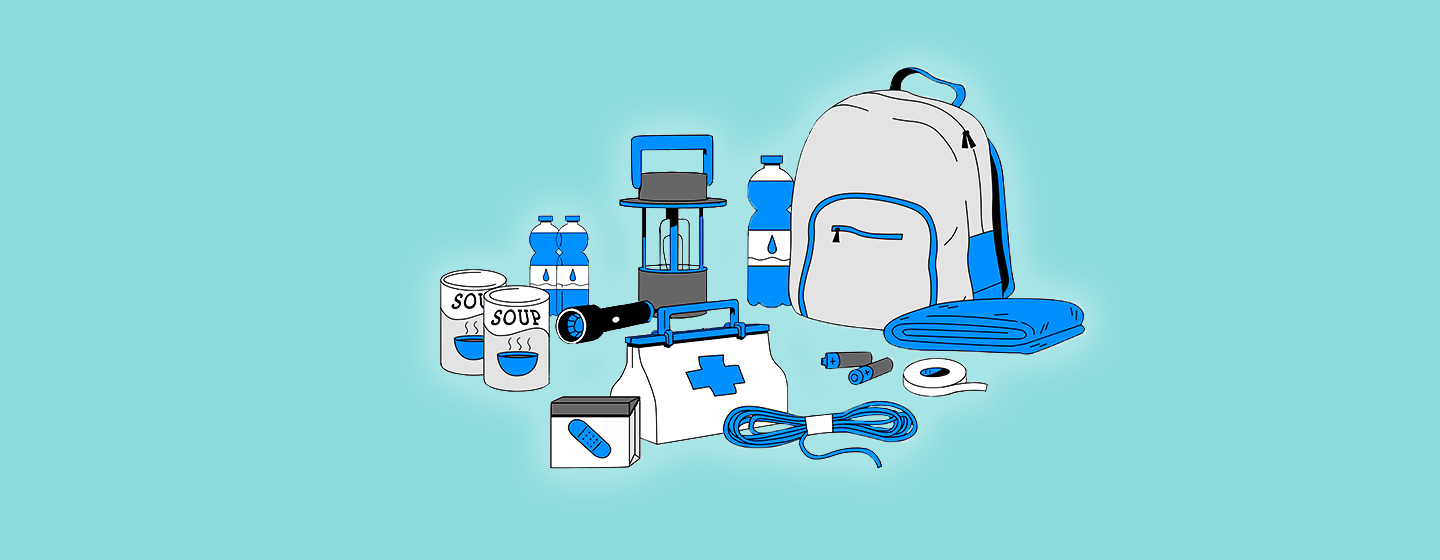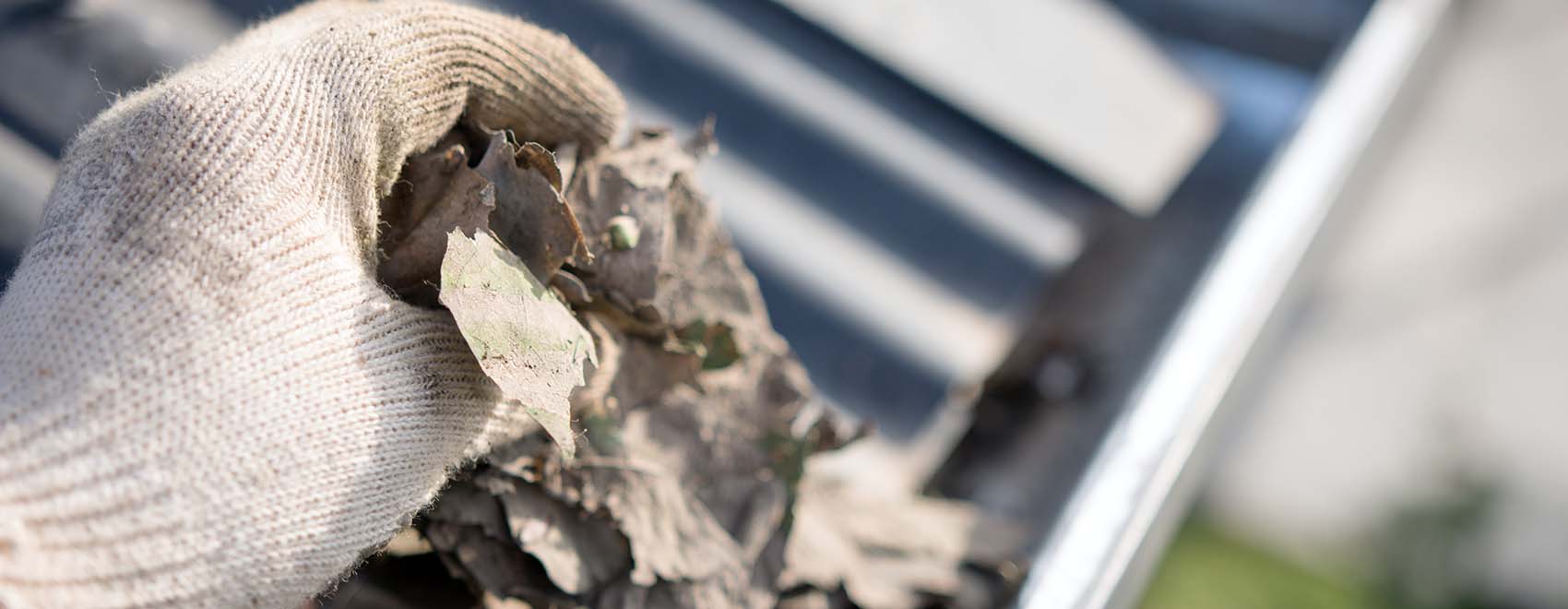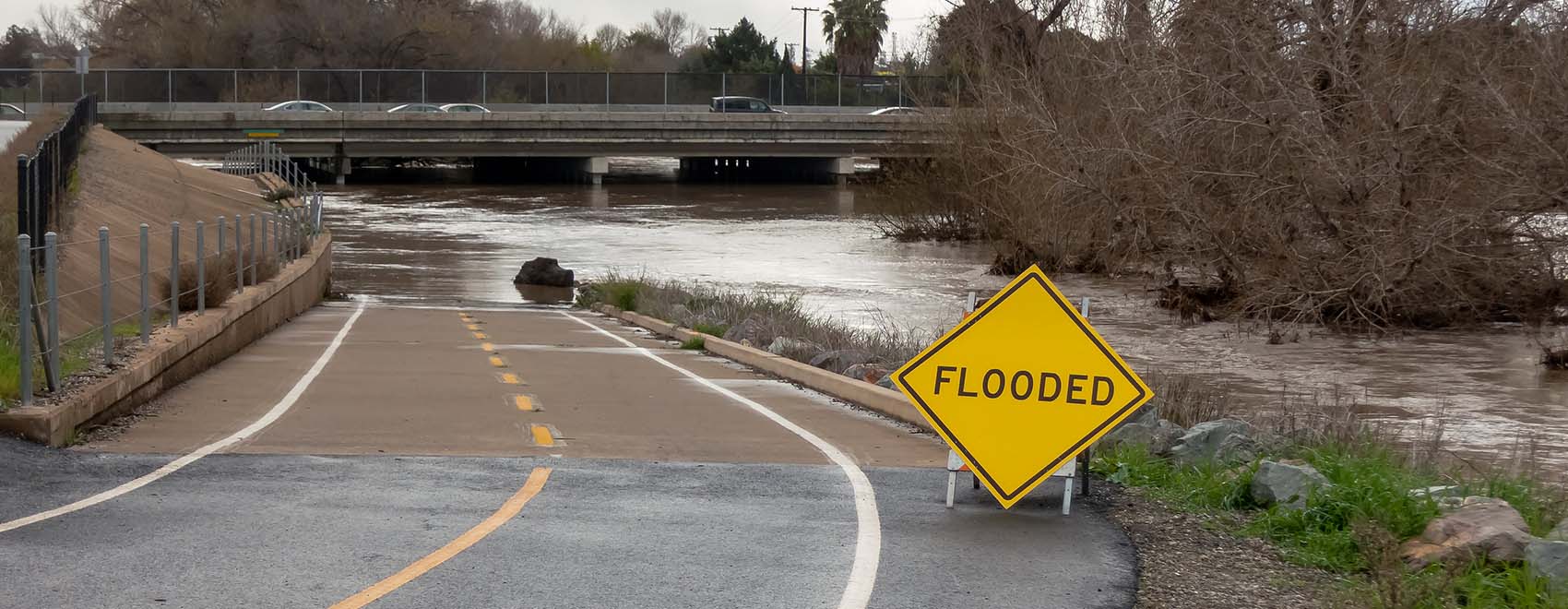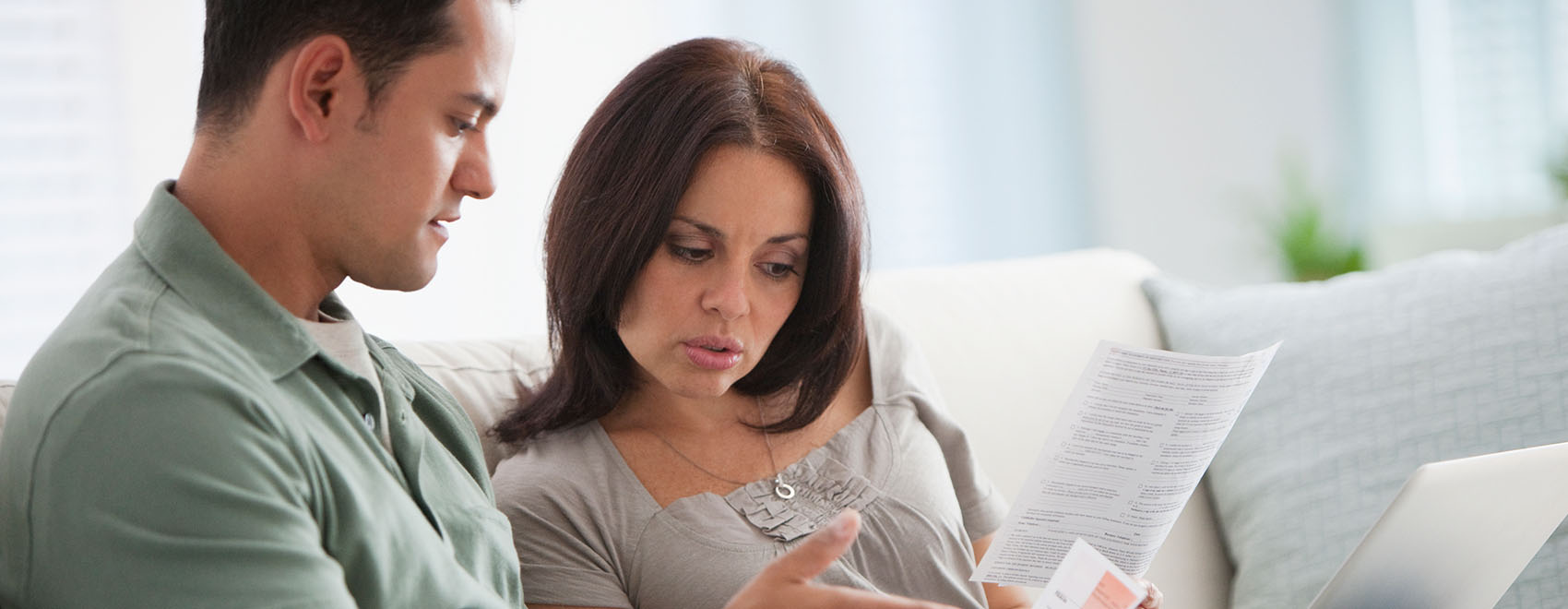Flood prevention and survival tips
Every year in Canada, flooding causes an average of $1 billion in damage to homes, properties and infrastructure. Here in BC, devastating floods, mudslides and washouts are becoming more frequent, especially in areas like Merritt, Spences Bridge, Princeton, Duffey Lake Road and the Malahat Highway, and low-lying communities along the Fraser River such as Hope, Abbotsford and Chilliwack.
Though floods in BC are most common in the spring, they can be caused year-round by heavy rains, storm surges, snow melts at higher elevations and damaged dikes or dams. Flooding can happen anywhere, too, not only if you live near a body of water. So, it’s important to know how to prepare and protect yourself, your home and vehicle.
At BCAA, we want to ensure that you and your loved ones are prepared in the unfortunate event of a flood. Follow these tips and get peace of mind knowing that you’re protected during peak flood season in BC.
Know your risk
Find out if your community is at risk of flooding. Is your neighbourhood built on a floodplain? The BC government has posted these floodplain maps (1987-1998) by region. In 2021, Western University released the first Canada-wide flood maps—they show how floodplains could be flooded over the next 80 years under various climate change scenarios.
Make an emergency plan and make sure your family knows it
It's important to know how you'll get out of your home, and safely out of your community, if you need to be evacuated. First step: make an emergency plan. This will ensure your family, including your kids, know your evacuation route and how you'll communicate with each other should extreme weather hit.
Be sure to write down everyone's phone numbers and emails. Also, write down and memorize where to meet up if you get separated. Pick a meeting spot close to your home, like a nearby hill or neighbour’s house. You should also pick a backup meeting spot away from your immediate neighbourhood, like your nearby library or community building.
To help you create your emergency plan, use the BC government’s Fill-in-the-blanks Home Emergency Plan. It also encourages you to establish a virtual emergency meeting place online (like a closed Facebook group or WhatsApp chat for just your family), so you can all stay in touch if you get physically separated by a flood.

Create an emergency kit
Prepare an emergency kit (a.k.a. grab-and-go-bag) for your home and another emergency kit in each vehicle. Each emergency kit should contain enough food, water, and supplies to sustain your family for at least 72 hours. BCAA Members save 20% on emergency kits for home and personal use with our rewards partner F.A.S.T. (First Aid & Survival Technologies Limited)**.
Step one: Buy a ready-made kit or build your own, which includes items listed on PreparedBC's recommended basic essentials. In a waterproof container, keep your immunization records and when you last had a tetanus shot.
Step two: Customize your kit to meet your needs. For example, you should include regular medications, comfort items for your kids and food for your pet.
Step three: Keep your home emergency kit in a place you can quickly access. Then prepare extra emergency kits to keep in the trunk of your car, recreational vehicle and at work.
Watch our Fast Facts video on how to prepare your own emergency kit.
Basic helpful flood preparation tips in case the worst happens
There are a few helpful preventative measures you can take to prepare for floods in and around your home if they happen.
Keep valuables and appliances off the floor: Store your valuables, important documents and electronics up high on shelves or upper floors. Same goes for large appliances, furnaces, hot water heaters, and electrical panels if flood is imminent. Have a qualified tradesperson raise your appliances onto wood or cement blocks above the potential high water level. If an appliance can’t be raised, you can anchor it and protect it with a floodwall or shield. You can also raise electrical sockets on your ground floor to keep them above the high-water line.
Install safeguards: Add weather protection sealant (you can find this at your local hardware store) around your basement windows and the base of your ground-level doors. Get a battery-powered sump pump to remove flood waters and add a permeable paving surface to your sidewalks and driveways. You can also install permanent flood safeguards like self-closing flood barriers. These are designed to keep water out of your home for as long as possible. Companies that offer flood barriers include Flood Control Canada and Dam Easy Flood Barriers in Kelowna.

Clear gutter debris and divert storm water: Make sure your gutters’ downspouts extend at least 2 meters from your basement wall. You want the water to drain away from your property. Keep those gutters clean and clear leaves and debris out of nearby storm drains. Come wintertime, clear snow at least 1.5 meters from your home foundation.
Phone ABC: Keep your phones, laptops and devices charged so you’ll always have power in case of a flood. The golden rule of emergency preparedness is ABC (Always Be Charging).
For more tips on flood prevention, check out the City of Vancouver’s How to Minimize Flooding and the CDC’s tips on what to do before, during, and after a flood.
Leave if you have to evacuate
Leave your home when you’re advised to do so by emergency authorities. Don’t ignore the warnings from BC emergency authorities, as you could jeopardize the safety of your family or people who may have to come to your rescue.
If there’s time, bring in your outdoor items (BBQ, lawn furniture, garbage cans) or tie them down securely. Once evacuation is certain, turn off your electricity at the main power switch and turn the gas off at your main gas valve.
Don’t try to cross a flooded area
Follow the evacuation route given to you by officials. Don’t take a shortcut as you could get trapped in a dangerous area. Never cross a flooded area. If you’re walking, fast-moving water could sweep you away. Travelling by vehicle? Don’t drive through flood waters or underpasses. That water could be deeper than it appears and your vehicle could get stuck or swept away. You can lose control of your vehicle in just six inches of water. You should also avoid crossing bridges if the water’s high and flowing fast.

Know where to find emergency flood updates
To find reliable information during a flood, start with your local sources. This could be your municipality, regional district, band office or local authority. Know in advance how they’ll share flood updates, whether it’s through their website, phone, real-time social media or local radio and TV broadcasts.
You can also check official BC channels for updates. Emergency Info BC shares advisories, advice and recovery info for large emergencies (like floods) that may need support from the provincial government. Check their website and follow them on X for updates.
Only consume clean, safe water and food
Never drink flood water or use it to wash dishes, brush your teeth, wash or prepare your food. You should only drink clean, safe water. Listen to boil water advisories, too, when you should only use bottled, boiled or treated water for drinking, cooking and washing up. Your local authorities will alert you when the water’s safe again for drinking and bathing.
As for food during a flood, the #1 flood-food rule is ‘When in doubt, throw it out.’ It’s a shame to waste food but you must throw away any food or bottled water that comes from (or has been in contact with) floodwater.
Make sure you have the right insurance coverage
Now is the perfect time to review your insurance policies, so you fully understand your coverage in the event of a flood. Shopping around for a new insurance policy? BCAA offers flood coverage when eligible to protect you, your family and the longevity of your home.

Keep your home insurance up to date
It may be difficult to purchase home insurance as a natural disaster is unfolding so make sure you're always covered – including flood season. Know what coverage you have and whether you need to update your policy with any major renovations or property changes before a flood strikes. Learn more about protecting your home with BCAA Home Insurance.
Move and document your valuables
Take photos and videos of your valuables so you know what needs repair or replacing in the event of a flood. If you can, transfer irreplaceable possessions and valuables to a safe storage location and take photos of anything you can’t move. Upload important documents and precious digital photos to a secured 'cloud' or onto a portable hard drive that you can encrypt for added security and take with you.
Keep all vehicles on your property insured
Keep your recreational vehicles insured throughout flood season, as this lets you move them in the event of an evacuation. You can get basic liability insurance to move uninsured vehicles to a safe location, but coverage for physical damage may not be available in flood-affected areas. Learn more about protecting your vehicles with BCAA Car Insurance.
Protect your home from floods with BCAA Home Insurance
If disaster strikes, rest assured knowing that you're covered with BCAA Home Insurance. Did you know that over a one-year period BCAA paid out over 95% of claims related to fire, water, weather and theft?*
Ensure your family and your home are well protected by getting a quote from us at bcaa.com/home. As a BCAA Member you can save up to 20% on Home Insurance. Plus, save 5% when you buy online today.
For more information on BCAA's flood coverage, visit bcaa.com/flood.
Home Insurance is sold through B.C.A.A. Holdings Ltd. dba BCAA Insurance Agency, a licensed insurance agency, and underwritten by BCAA Insurance Corporation.
*From 2022 to 2023, BCAA paid out over 95% of home insurance claims related to fire, water, weather and theft. Past performance is not a guarantee of future results.







